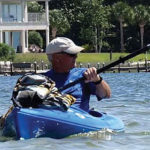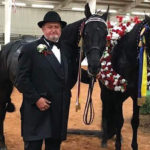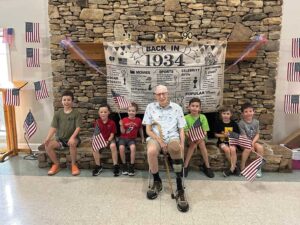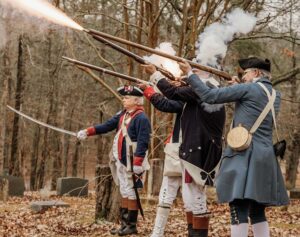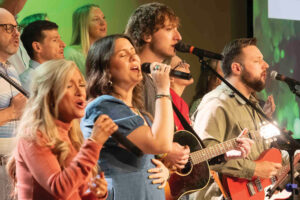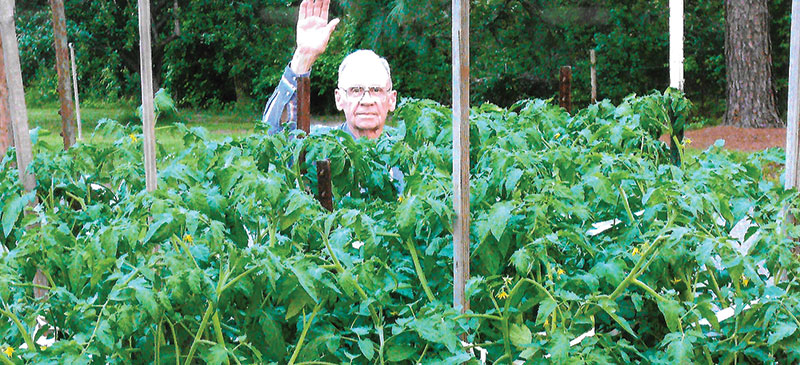
Historian, storyteller, family man, friend
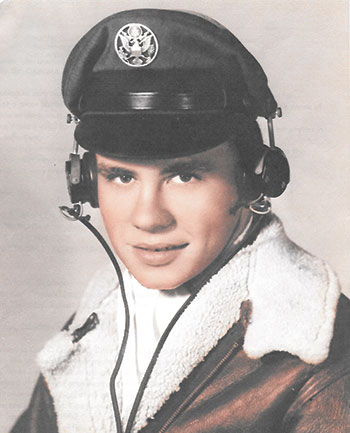
Story by Joe Whitten
Photos by Wallace Bromberg Jr.
Submitted Photos
This month’s travels along St Clair County backroads brings us to the Bethel community to stop at the home of retired Moody businessmen and local historian, Carl Coupland.
Born into a hardworking family on Jan. 16, 1932, Carl grew up with a work ethic that helped him succeed in his endeavors. He comprehended economics early-on. “I tried raising beef cattle on a small scale,” he said, “but it didn’t take long for me to get out of that, because you could go to your local supermarket and buy a bag of dried cow manure for your flower bed or garden plants for $0.20 per pound, but live cattle was selling for $0.18 per pound. The economy was all out of balance when the manure was worth more than the cow!”
Coupland family roots in St. Clair County go back prior to 1828, the year Carl’s great grandfather, Columbus Constantine “C.C.” Coupland, was born near Cook Springs. C.C. married Elizabeth Emaline Godwin in 1848, and they set up housekeeping in a home he had built in the Bethel community. Around 1856, on today’s Coupland Road, he built another home which served Couplands for generations. Carl’s granddad, Ira, was born in the house.
Carl enjoys telling how his parents met. “My mother, Mary Elizabeth Sheets, was born where Oak Mountain Park is located. Then she moved with her parents to land they owned where Greystone subdivision is today.
“Daddy, Lester Coupland, was down there doing rock work on Bold Springs Church and boarding with the Standifer family. He went to a Pie Supper at the church, where folk would bid on pies the girls brought. He saw that pretty girl there, and he bid on her pie – up to $5!”
They were married March of 1929 at Rev. Hurst’s home in Taylorsberg, Alabama, near today’s Kerr Road.
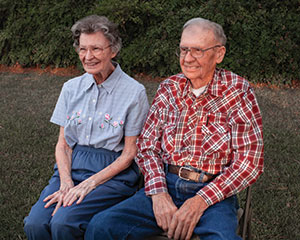
Lester and Mary Elizabeth set up housekeeping in a house on Coupland land where today’s Lazy V lakes are, but there were no lakes then. Two sons were born into the family, Joe (1930) and Carl (1932).
Lester plowed with a mule farmland which was terraced to prevent erosion. Carl’s earliest memory there occurred shortly before he turned four. “I was in the yard, and my Dad said, ‘We’re gonna move way over there across that mountain.’ We could see Bald Rock Mountain. …I was three years and eight months old when we moved to Camp Winnataska.”
Lester worked as stone mason and caretaker at Camp Winnataska, owned by the Birmingham Sunday School Council. The Council provided the Couplands a rent-free home. It had a fireplace and a kitchen sink, and it made no difference to them that the house had no electricity, no running water, bathroom facilities or telephone, for they were accustomed to that. Lester’s salary of $35 per month had increased to $70 a month in 1940 when he moved the family back to the farm.
Carl and Joe explored every acre of the camp while living there. They attended school one year at Stewart’s Crossroads near Prescott and then rode the bus to Moody School two years.
Carl’s memories of Camp Winnataska and Lester’s stone masonry are in Discover, June-July 2012, and can be read at this link: bit.ly/2ryrTXu
On the farm, Joe and Carl plowed with mules, helping their Dad with the farming. In 1942, Lester took a job with the Coca-Cola Co. in Leeds, driving a delivery truck in Jefferson and St. Clair counties. After that, he drove a gasoline truck for J.W. McCraney Co. in Leeds.
In 1945, Lester bought the old C.C. Coupland home on Coupland Road. Carl’s mom and her friend Mable Moore wallpapered the house and got it move-in ready. This was their first home to have a bathroom.
Carl recalls moving day. “Daddy went off to work one morning, and Mother said, ‘Let’s move.’ I was 13 years old and Joe was 15. We hooked up the two mules, Old Jane and Old Kate, and drove that wagon and started moving our stuff. We moved all the furniture that day.”
There were two girls in the community, Carolyn Moore and Nelda June Taylor, who helped them move, and were a great help to Mrs. Coupland. She was used to boys’ help and enjoyed having girl-help that day.
Driving home from work, Lester saw smoke curling from the chimney, stopped and discovered a tidy home and supper simmering on the wood cook-stove.
Carl finishes the story. “The man Daddy drove the truck for also had a tobacco and confectionery company, and Daddy had brought home a box of Hershey’s candy. Now, chocolates were hard to come by during WWII. I don’t remember whether it was 12 or 24 bars, but those girls ate up our box of candy the day we moved.”
Carl chuckled and said, “The little 13-year-old Nelda June Taylor became my wife nine years later on 3 December 1954. As of now, I have been lucky enough to live with the best woman on earth for more than 65 years.”
Joe and Carl attended Branchville School through the sixth grade and then attended Odenville school. Joe graduated from St. Clair County High School in 1948, attended college and eventually earned a PhD from Ohio State. Dr. Coupland served as principal of Phillips High School in Birmingham and of Morgan County High School in Hartselle. He was director of Adult Education with the Birmingham City Board of Education when he retired. Shortly after retirement, he died of pancreatic cancer in June 1985. He was the first PhD elected to the St. Clair County Board of Education, of which he was chairman when he died.
A desire to serve
Carl’s interests took him in a different but productive direction. Six months’ shy of graduating high school, he joined the Air Force. Signing up before his eighteenth birthday, he couldn’t leave then because his parents wouldn’t sign for him. But, on his birthday, Jan. 17, 1950, he boarded Odenville’s Mize Bus to Birmingham and took the train for Lackland Air Force Base, San Antonio, Texas, for basic training.
As he tells it, “I was young and knew everything at 18 years old. My parents didn’t know anything, and I had the world by the tail with a down-hill pull!”
After Lackland, Carl went to Radio Operator School at Keesler Air Force Base, Biloxi, Miss. The Korean War broke out in June 1950, so after finishing at Keesler in October, Carl and others were sent to Mitchell Air Force Base, Long Island, New York, for reassignment.
Carl’s family feared he was destined for Korea, but instead he landed at Ft. Meade, Md., in Aircraft Control and Warning. One day the commanding officer asked for three volunteers to go to work in Flight Safety at Air Defense Command Headquarters in Colorado Springs. Carl volunteered.
Given a week’s furlough and having heard his buddies tell about hitchhiking, he decided to hitchhike home. He took a bus from Ft. Meade to Winchester, Va., then got on U.S. 11, put out his thumb, and the first car, a new 1950 Chevrolet, stopped.
Carl thought he recognized the driver’s voice but couldn’t place it. When they introduced themselves, it was Bert Parks, who had the famous New York radio program, Stop the Music. He was going to Rome, Ga., for a show and had to side-track to Columbia, S.C., to get two showgirls, and Carl went with him.
Parks thanked Carl for his service and paid for all the meals on the trip. “Wouldn’t let me spend anything on the way down,” Carl recalled.
Arriving in Rome at 2 o’clock on a cold, pitch-black December morning, Carl got back on the highway to catch a ride. No headlights lit the blackness all night. “Just after daybreak,” Carl said, “I saw a Greyhound bus coming that had ‘Birmingham’ written on it. I flagged him down and rode the bus to Springville.”
Carl paid $2 to a Springville taxi driver to take him to his parents’ home. He visited five or six days, then caught a bus back to Fort Meade, and from there, the volunteers took a train to Colorado Springs.
The train trip took two days with a four-hour lay-over in Chicago where the USO Club fed the volunteers and gave each one a Bible. The men left the train in Denver and took a bus 70 miles further to Colorado Springs.
The Air Defense Command had just been started, and to be in the center of the country had moved to a Colorado Springs Army Base and was redoing it. Headquarters were completed and in use, but the barracks weren’t finished. So, for about four months, the men lived in a hotel in Manitou Springs.
Carl bought a 1936 Chevrolet for $35. He and two of his buddies drove it to and from the base until they completed the barracks.
Because Carl was a clerk and a radio operator, he was assigned to work with officer pilots who had to fly four hours a month in order to keep their flying status – their wings.
The United States had Aircraft Control and Warning squadrons as well as Fighter Squadrons stationed around the country.
Carl, promoted to the flight safety crew, tracked the locations on a large map above his desk. On it, blue pins showed the location of every Fighter Interceptor Squadron, and red ones of every Aircraft Control and Warning Squadron.
For this work, Carl knew secret information and had to have top secret clearance. The FBI investigated him, sending agents to Odenville and Branchville to talk with neighbors, friends, preachers and teachers.
“My parents thought this boy was in trouble,” Carl laughs, “but I wasn’t. After that, whenever we had an accident involving one of our interceptor planes, we flew to investigate the scene.”
Carl’s crew collected wreckage. If fatalities had occurred, casualty remains had been cleared by an earlier crew. However, as he worked one site, the sun glinted off something. “I think that was roughest scene I ever went to,” Carl said. “Two F-86 Sabres flew out of the fog and right into the side of a mountain. There wasn’t much left.
“We collected wreckage parts and pieces and got ‘em piled up. I saw something shining on the ground. It was a man’s hand with a gold ring on it. I picked up the hand and gave it to the commanding officer. He was to get the ring to the widow. I trusted him to do that.”
Such memories linger, and Carl reflects, “You know, I have sometimes thought about that hand at 12 o’clock at night.”
Carl and his buddies used free weekends exploring Colorado – Pike’s Peak, Will Rogers Shrine, Garden of the Gods, Seven Falls and parks. They made one Juarez, Mexico, excursion with Carl protesting it might not be a wise trip. Carl drove his car, and one buddy rode his motorcycle. At the border, Carl parked his car at a gas station and paid the attendant to watch it. His buddy chained the front wheel of his motorcycle to a telephone pole away from the station.
It didn’t take a long to realize Juarez wasn’t where they should be, and they returned to where they’d parked. “My car was fine,” Carl laughed, “but all that was left of the motorcycle was the front wheel chained to the pole.”
An interesting follow-up to Carl’s Air Force years is that his cousin, Adm. James A. Winnefeld, Jr., who had been an instructor in the Navy Top Gun School and had done the flying in the movie Top Gun, became the officer in charge of Carl’s old outfit in Colorado Springs. Adm. James A. Winnefeld’s mother, Fredda Coupland, was born in St Clair County. She married career Navy man, James A.Winnefeld Sr., later an admiral himself.
In President Obama’s administration, Adm. James Winnefeld Jr., became vice chairman of the Joint Chiefs of Staff. He was the second highest ranking military person in the United States at that time, serving under Gen. Martin Dempsey, chairman.
While Carl served in the Air Force, Nelda June Taylor earned her nursing degree. She had worked her way through three years training at the Jefferson Hillman Hospital in Birmingham, when the University of Alabama bought Hillman Hospital, and it became UAB Hospital. June’s graduation ceremonies were at the University of Alabama in Tuscaloosa.
Carl and June married Dec. 3, 1954. As a registered nurse, June worked at ACIPCO Medical Group and at Dr. Davis’ Clinic in Leeds.
Before settling full-time as a realtor, Carl worked at different jobs. Gulf Oil Co. put him at a station on Highland Ave and 20th Street, with gas islands all the way around the corner.
He had the 11-to-7 shift and was by himself from 1 a.m. to 5 a.m. “I had a money changer on my belt, a roll of money in my pocket, and was there by myself pumping gas at night. I felt safe back then,” he recalls.
Then he opened a service station in Branchville, at the location of the car lot today on the corner of Hurst Road and U.S. 411. He and June bought a house and nine acres across the road from the station.
Their son, Mike, was born there in 1957, and they lived there until 1968 when they moved to the property where their home is today. Eventually, he divided the Branchville acreage into lots for a subdivision there.
For a while, he had an insurance debit route from Cahaba Heights to Sylacauga. Realizing that wasn’t for him, he took a job with Leeds businessman, Judge McCraney, who owned McCraney Tobacco and Confectionary Co.
Asked about his real estate work, Carl said, “I started buying land and farms in 1955, while I was working other jobs. I did this until 1968 when I got my real estate broker’s license and opened an office in Leeds across from the Pants Store.”
While Carl was building his real estate business, Mike graduated from high school and married Jeanie Kerr. They became parents to twin daughters. Carl said of his daughter-in-law, “She is the nicest person you could have ever imagined in your life.”
Mike became a union carpenter and had worked his way to a superintendent’s position. Advancement sometimes brings relocation, and in 1985, the company wanted Mike to move to Florida. However, he told his father, “I really don’t want to go.” Carl said, “Come into the real estate business with me, and we’ll see how you do.” Mike runs the business today.
Carl stayed in Leeds until 1985, then moved to Moody and opened Moody Realty. He and Mike together ran Moody Realty Co. until Carl retired at age 84 in 2016.
Recalling his work, Carl said, “My business was great. People were coming out of Birmingham and moving to Leeds, Moody and Odenville. I remember selling five houses in one day.”
Catherine Lovejoy worked in the gas company in Leeds next door to Carl’s office, and the Lovejoys and Carl became friends. “Lyman (Lovejoy) was selling real estate part time and holding down a full-time job,” Carl said.
“He came in my office one day and asked me, ‘Do you think if I got into the real estate business full time that I could make it?’ I said, ‘Lyman, the time is right. People are moving out of Birmingham. Get you six months’ grocery money ahead and jump into it.’
“He didn’t take my advice. He got a year’s grocery money ahead and jumped in. Well, it wasn’t long until he had enough business that Catherine had to quit work and help him. … Lyman was always honest with me. We trusted each other. He just had more nerve than I did. I made a living, and he made a fortune.”
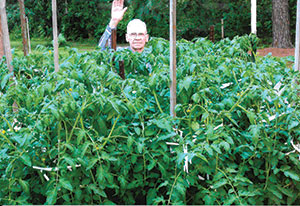
Some land sales Carl remembers with pride, and rightly so. Leeds Memorial Park is enjoyed today on land he sold to the city through Mayor Jack Courson. Carl worked with the St. Clair County Board of Education to obtain land for the Moody High School, Junior High School and Middle School – and land for a second road into the school property. Shortly before he retired, he worked with Moody’s Mayor Joe Lee for the Jack’s Family Restaurant site to be located on Moody Parkway. And we all know that the problems of the world have been solved over breakfast at a Jack’s round table, Anywhere, USA.
Of his son and Moody Realty, Carl says with pride, “Mike has done well with the business. Paula Krafft is his right arm, and Allie, her daughter-in-law, works in the office. Paula and Allie are the most knowledgeable real estate people I have ever known. Mike could go off fishing three days, and they could run the place.”
On occasion, a real estate person has not been above-board and honest with Carl, but he never retaliated. He quietly wrote the person’s name on a piece of paper, dropped it in his bottom desk drawer, and never did business with them again.
Today, June and Carl are doting grandparents and great-grandparents to Beverly and husband Alex Armstrong with their daughters, Allee June and Caroline, and to Ginger and husband, Jeremy Gilbert, with their children, Jackson Cade, Kinslee Morgan and Ellison Kate.
This younger generation is growing up hearing Carl’s memories of the past. But in case he doesn’t share this Halloween tale, we record it here.
One fateful Oct. 31, many years ago, Carl and three friends had the prankish idea to put a cow in their ball coach’s house while he and his wife were at a party. This they did and skedaddled – home free, they thought. However, when Mrs. Coach found a cow in her living room, she exclaimed, “Carl Coupland and (name withheld to respect the dead) did this!’ She guessed two correctly, but Mrs. Coach never told the pranksters’ parents. She had boys of her own.
Should you have an hour or two to visit him, Carl can tell you St. Clair County history that he learned from listening to his father and grandfather tell of their lives and from reading anything he can get his hands on.
Carl Coupland: father, grandfather, businessman, historian and conversationalist. Listen to him. He’s a St. Clair County icon worth knowing and hearing.











